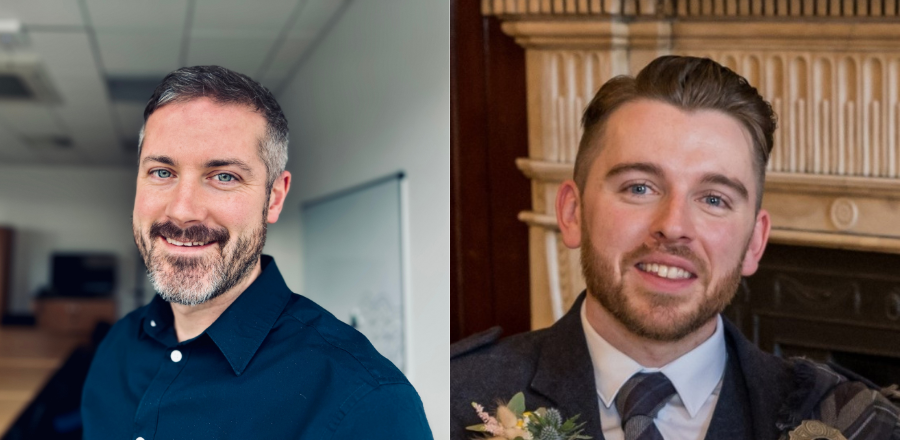Researchers win funding to improve lives of people with heart disease

A Scottish charity has awarded funding to health researchers at Glasgow Caledonian University to help improve the lives of thousands of people with Peripheral Arterial Disease (PAD).
Dr Chris Seenan, Senior Lecturer in the Department of Physiotherapy and Paramedicine in the School of Health and Life Sciences, (SHLS) secured the £14,090 funding from the Scottish Heart and Arterial disease Risk Prevention (SHARP), with fellow Physiotherapy Lecturer and PhD researcher Sean Paul Carroll and Dr Les Wood, Senior Lecturer in Physiology, Department of Biological and Biomedical Sciences.
PAD is an incurable and progressive type of cardiovascular disease. The cause of PAD is the narrowing and hardening of arteries of the legs through a process called atherosclerosis.
People with PAD have a poorer quality of life compared to those who don't have the disease and they are at higher risk of having a heart attack, stroke or amputation.
Care guidelines recommend that people with PAD should receive the same treatment, including help to make changes to diet, smoking and exercise, as those with other heart conditions.
Recent research has indicated that when compared to people with these other conditions, people with PAD receive fewer medications, exercise therapy and other common treatments.
People with PAD experience excruciating pain in their legs during walking, and despite being the best treatment, there is very limited provision of exercise classes for people with PAD across the UK.
This research will test a combination of two new treatments for PAD. One is using an electrical stimulation device (Transcutaneous Electrical Nerve Stimulation, TENS) for pain management and the other is a motivational interviewing-based, walking exercise programme, with the aim of improving levels of physical activity.
The researchers will find out if the walking exercise programme delivered via telehealth is feasible and acceptable for people with PAD. The programme involves support from a physiotherapist over two video calls, and two follow up phone sessions. The study will measure physical activity, walking and quality-of-life outcomes and compare to the people receiving usual care in NHS Lanarkshire.
Dr Seenan, who is also a member of the SHLS Ageing Well Research Group in the Research Centre for Health (ReaCH) said: “We are very pleased to secure this funding from SHARP to support this important study. The findings from this study will tell us how possible it is to provide these types of intervention remotely, and this is essential when people live in remote and rural locations, or face other barriers to access, a common issue across Scotland and the UK.”
Sean added: “Establishing research that focuses on real-world applicability, feasibility, and acceptability is important when we consider the challenges faced by our National Health Service and the result of this on people with long-term conditions such as PAD.
“People with PAD may not be able to access scarcely provided exercise services, or wait a long time for an appointment with a health professional to advise on exercise strategies. We’re delighted to receive support from SHARP for this important first step in evaluating an intervention that could be rapidly scalable within the NHS to overcome accessibility barriers to exercise for people with PAD.”
